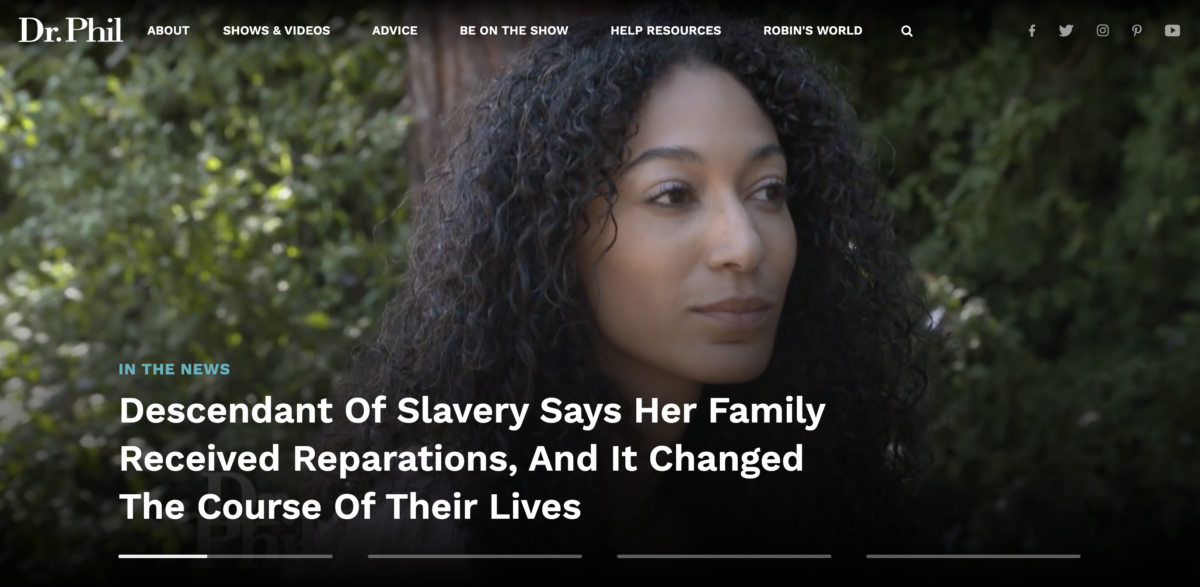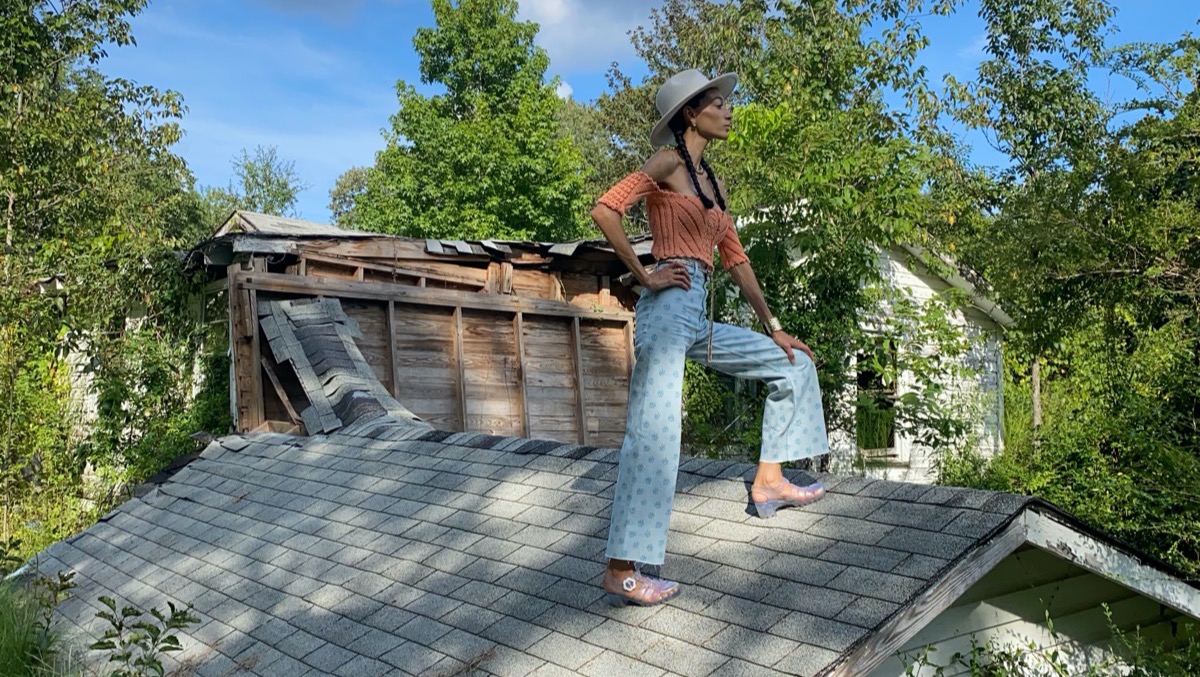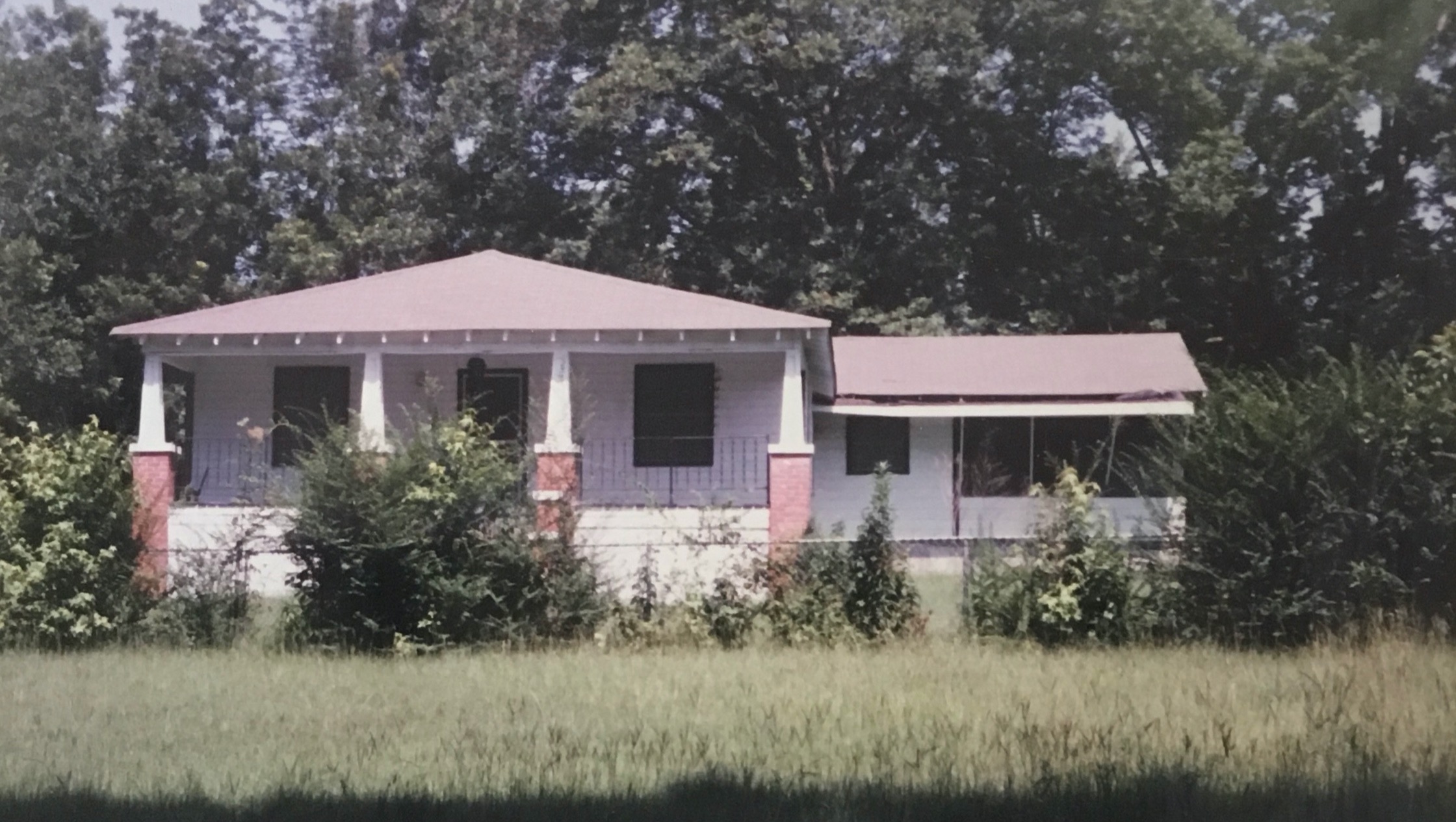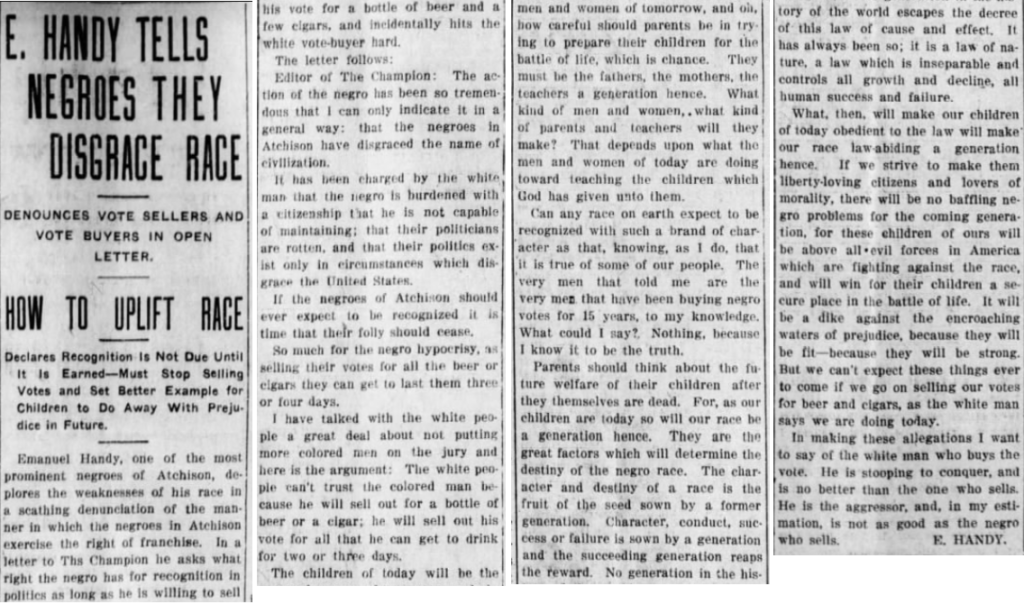Living off the Legacy” follows elder cousin, George Jefferson Sr., on a foraging, fishing, hunting, and food preparation journey through our family’s ancestral land, showing us how he lives off the legacy our ancestors left. A film by Patrice E. Jones. This film was a part of the 2024 Prototype Film Residency.
Author: Patrick Rhone
Atchison Champion, March 2, 1916 – Against All Odds
Emanuel Handy, one of the most prominent negroes of Atchison, deplores the weaknesses of his race in a scathing denunciation of the manner in which the negroes in Atchison exercise the right of franchise. In a letter to The Champion he asks what right the negro has for recognition in politics as long as he is willing to sell his vote for a bottle of beer and a few cigars, and incidentally hits the white vote-buyer hard.
Our Great-Great Grandfather giving his fellow Black citizens the what-what and telling it like it is.

Patrice Jones of Handy Heights was featured on Dr. Phil today discussing the impact that reparations has had on our family.
“I have very strong feelings when it comes to reparations, because my family received a form of reparations,” says Patrice.
Patrice says her great-great-grandmother, Florence, was born enslaved to a white slave owner father six months before the emancipation proclamation. She says that when Florence got married, her father helped her buy 40 acres of land in Hazlehurst, MS.
“My family got reparations from my great-great-great grandfather Ephraim Payton Jr.,” Patrice says. “This property has been passed down, and it has remained in my family for over four generations … The land that we’ve inherited has kept my family together through generations, which is not typical for a lot of Black American families. Without this property, my family wouldn’t have a leg to stand on.”
Handy Heights on MarketWatch

Handy Heights and Patrice were recently featured in a great MarketWatch article, How one Black family got its 40 acres — and turned them into intergenerational success
There are so many great points and a ton of historical context in the article but I think my favorite quote is from Mom:
‘This is an example of what would have happened if we had received our 40 acres from the beginning. We received it. Look what has happened to our family as a result of landownership.’
— Tisch Jones, Patrice E. Jones’s mother
Reported by Emma Ockerman, the article does a wonderful job of telling our story that takes the time to weave it into the larger narrative of the promise and power reparations still hold.
As stated in the article, ‘Patrice is a steward of the land, and she wants to use that land to give others the vision of being stewards of their own.’
The Road to Freedom
Why we need your help…

We, as a family, would like to return Handy Heights to its former glory and continue to use the land as a space for healing, safety, and resources for Black, Indigenous, and people of color in the community and beyond. We have a small pecan orchard and hope to begin farming our pecans. We also would like to create an archival space on the land to protect and preserve our legacy.

Unfortunately, time has not been easy on the land and structures. The two generations before me distanced themselves from the land, and for the past 15 years it’s been neglected and vacant. The houses are deteriorating more and more each day.


The homes of Handy Heights are historic. Our ancestors designed and built them from the ground up. They are a beacon of Black architecture, craftsmanship, and design.


For the past year, with the help of my cousin George, I have been on a mission to clean up the land and restore my great-grandparents’ home, Handy home 1. (To see the work we’ve done so far, check out @TheCreoleo on TikTok and @Creoleo & @HandyHeights on Instagram).



We have made tremendous progress and are finally on our way to having a livable home. My plan is to live in my great-grandparents’ house, care for the land, and begin creating infrastructure for our ultimate vision. We have a five-year plan to restore all four houses fully, but if we do not act soon, Handy homes 2, 3, and 4 will reach the point of no return. We are asking for funds to begin saving (aka “mothballing”) Handy homes 2, 3, and 4 so they don’t incur any more damages from the elements and fall to the ground. We cannot lose these houses!
Please help us preserve this vital piece of Black American history so we can share this land and story with the world, honoring the legacy our ancestors built.

“Go back and get it!”

